FANTASTICAL FEAST As Burkard Schliessmann’s latest 3-CD album hits the shelves, the German pianist talks to Pianist about the wonders of interpreting and recording Schumann’s solo piano music
Stream Burkard's brand new recording below while you read his fascinating chat with writer John Evans.
'Goethe said, “Dreams are the feelings of the imagination.” Likewise, to me, fantasy and imagination without feeling are each hollow and dry. Music only comes to life when they are combined.’
Time spent in the company of Burkard Schliessmann, is time spent in the company of a philosopher; a pianist perpetually seeking the emotional truth behind music’s surface beauty.
In Robert Schumann: Fantasies, his latest 3-CD set released on Divine Art Records and dedicated to the composer’s piano music, Schliessmann reveals this emotional truth to us by, he says, ‘illuminating the inner germ cells of the music in all its expressiveness and explosiveness and bringing it to its limits.’ In doing so, the pianist presents some of the composer’s most familiar works, among them Kreisleriana, Fantasiestücke, the C major Fantasie and the Arabeske, as though freshly minted.
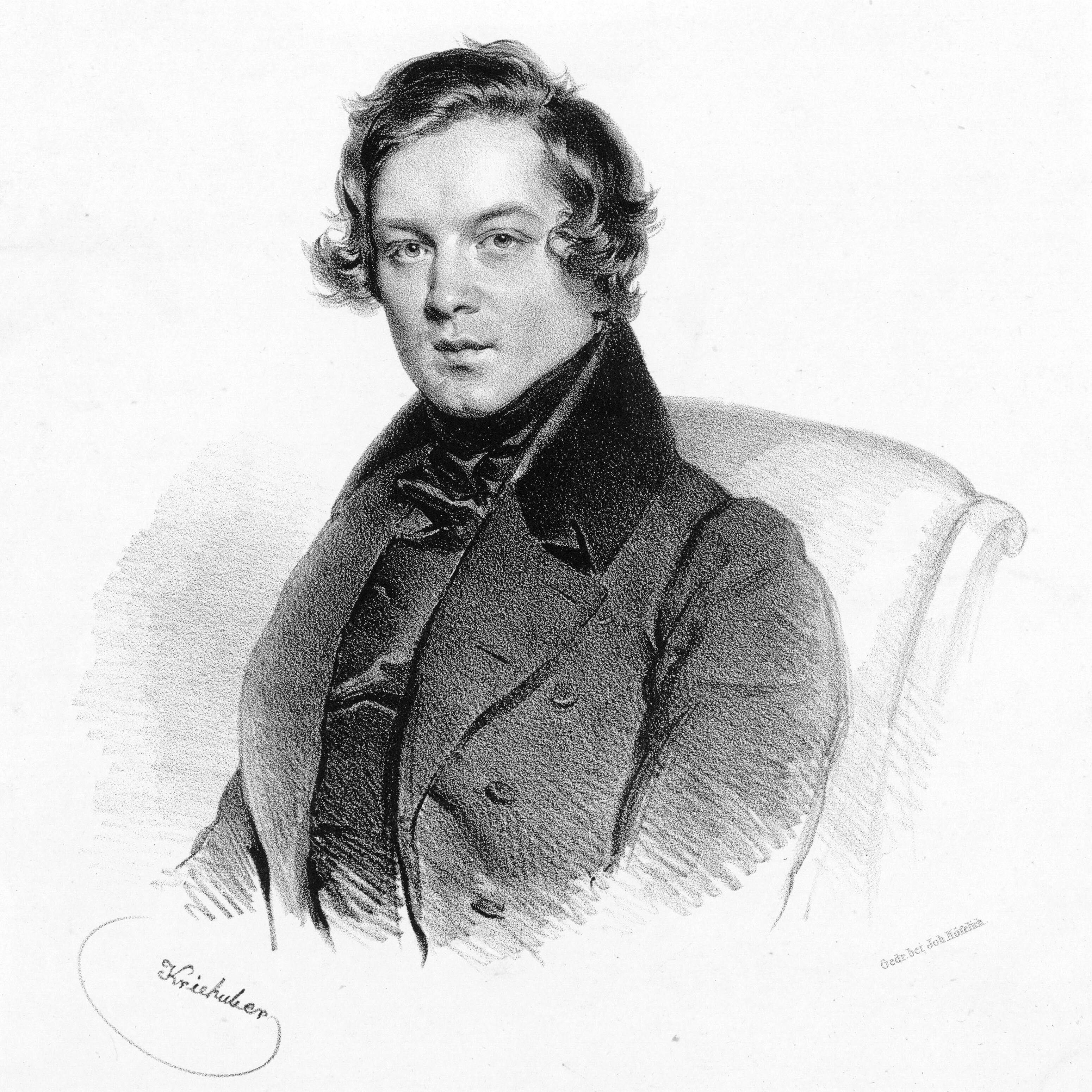
Robert Schumann: The subject of Burkard's brand new album
In this, Schliessmann, who has worked with those titans of the Romantic tradition Shura Cherkassky, Bruno Leonardo Gelber and Poldi Mildner (a pupil of Rachmaninov and Schnabel), is assisted by an astonishing instrument: a Steinway Model D provided by Daniel Brech and with a choice of two complete actions, one bright and brilliant, the other warm and dark.
As Schliessmann explains, ‘Exchanging the keyboards enabled me to record two completely different interpretations of some of the works including the Arabeske and ‘Des Abends’ from the Fantasiestücke Op 12. I repeat these works on the second disc. Especially for the second recording of ‘Des Abends’, which closes it, the choice of the warmer and darker hammers is akin to closing a circle by creating a kind of transition to the darkness of the Nachtstücke Op 23, with which the third disc begins and which introduces Schumann’s late pieces.’
Recording at Teldex Studios
Schliessmann also chose to record his new 3-CD set at Berlin’s renowned Teldex Studios (pictured above) with the expert assistance of producer Julian Schwenkner and engineer Jupp Wegner who each oversaw the positioning of no less than 14 microphones for a Dolby Atmos experience reproduced in SACD quality. The recording’s clarity and richness stands as testament to their work and the quality of the Steinway piano.
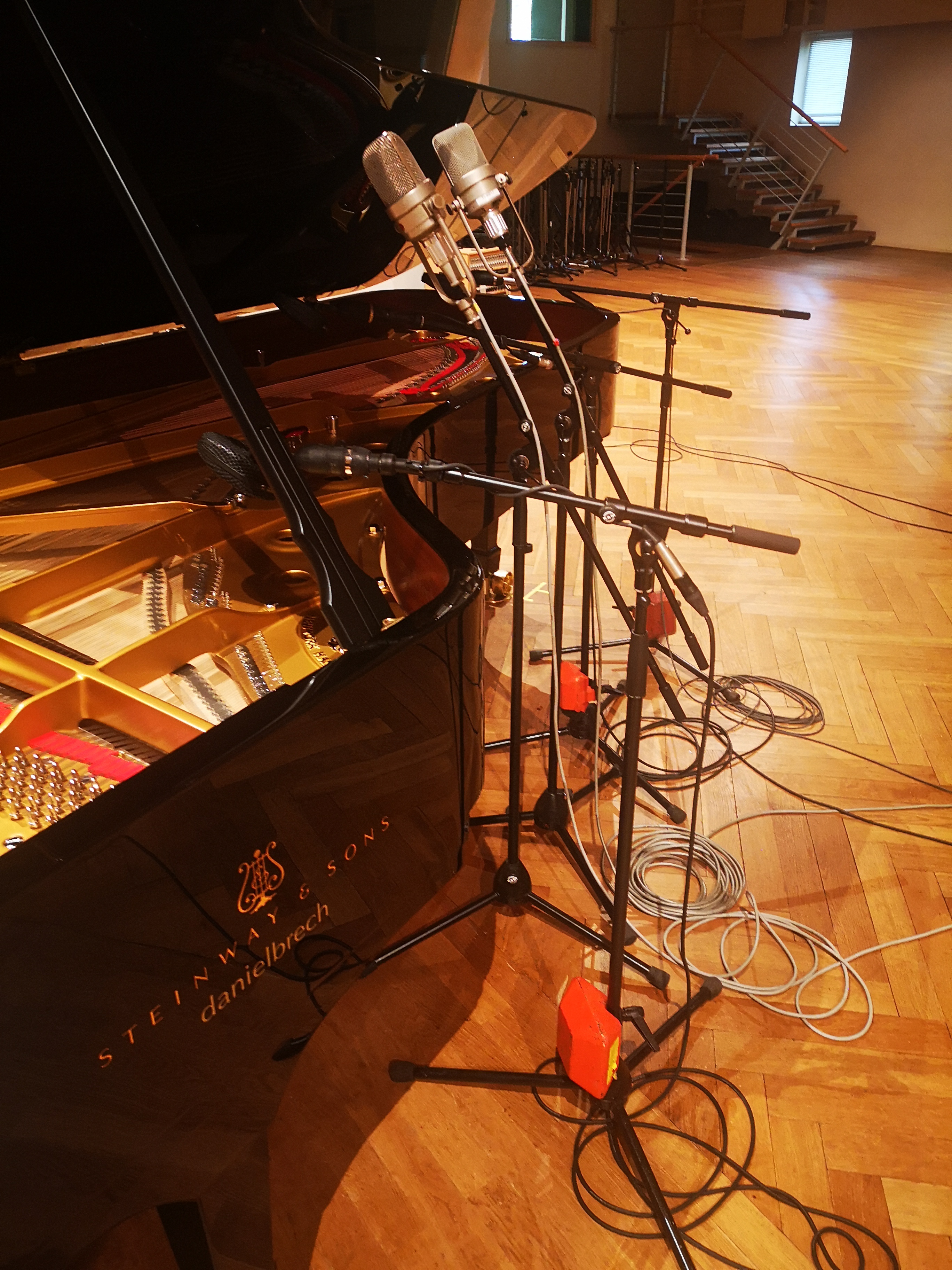
14 microphones were used to record the German pianist's new album
‘During the recording process I worked as if in a trance,’ explains Schliessmann. ‘I became one with the great acoustics of the Teldex studio, the unique instrument and in discussions with Julian and comparisons between various editions and original scores, I took Schumann to a special level, presenting to the listeners all his disjointedness, intricacy, vision, eccentricity and, yes, morbidity.’
Schliessmann’s ability to reveal and convey a composer’s inner world is already well recognised. A recipient of the Goethe-Prize of Frankfurt/Main, a multi-time medal winner of the Global Music Awards and the subject of two critics choice awards in the American Record Guide, Schliessmann is one of the most compelling pianists and artists of the modern era. It is surely no surprise, then, that for his latest 3-CD set, he gives us such remarkable insights into Schumann’s music.
The story unfolds...
The album opens with Kreisleriana Op 16, an eight-movement piece inspired by a satirical novel by ETA Hoffmann. It’s a complex and phantasmagoric tale that finds its equal in Schumann’s music and Schliessmann’s richly coloured and insightful performance.
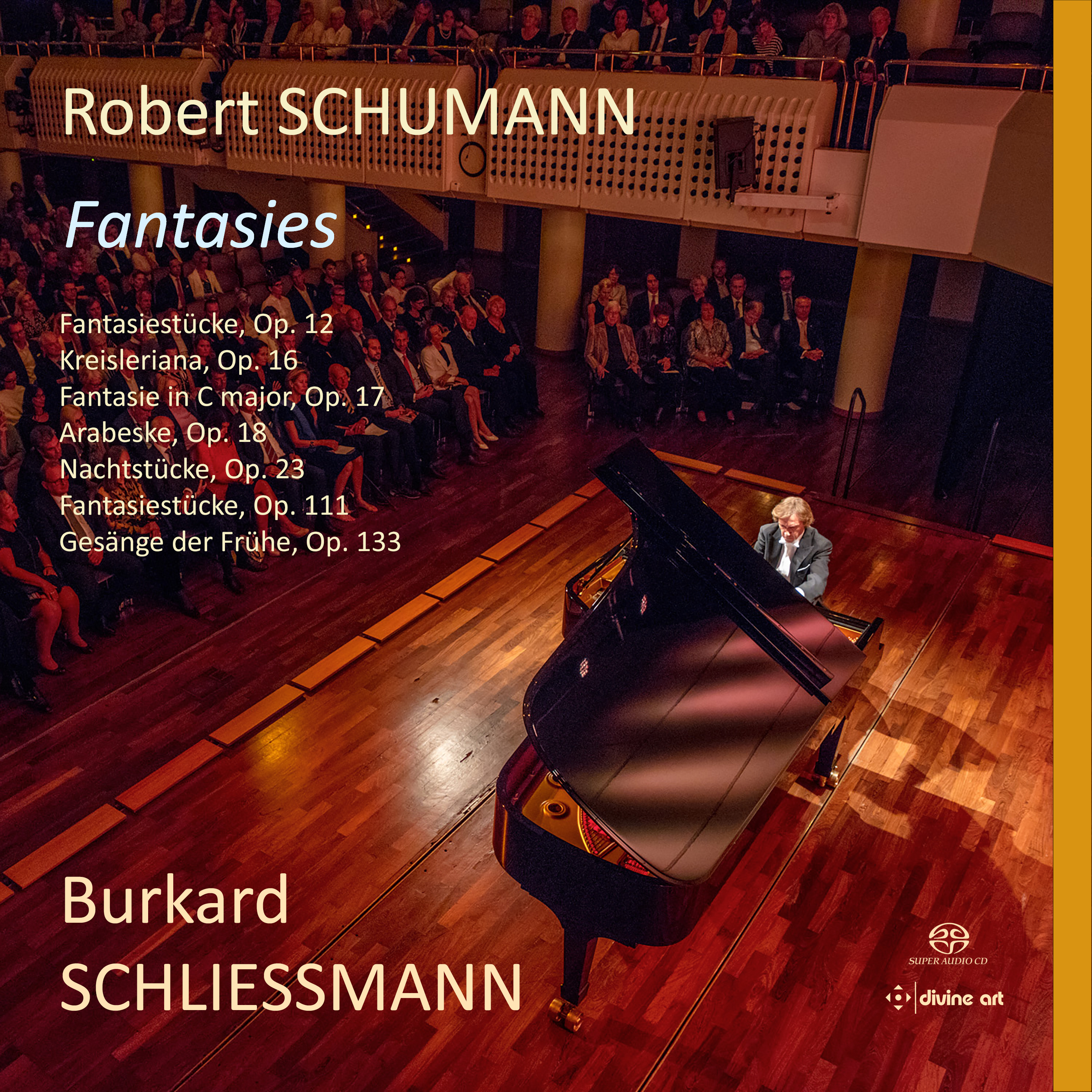
Burkard Schliessmann's 'Fantasies' album opens with 'Kreisleriana' Op 16
It is followed by the Fantasie in C Op 17, which Schumann dedicated to Liszt but which harks back to a freer and more improvisatory conception of sonata form anticipated by Beethoven.
Accordingly, Schliessmann brings all his pianistic skills to bear with beautifully judged pedalling, crystal clear articulation and above all, a deep feeling for the music. He allows the work to breathe, exploiting every hiatus and pause to brilliant effect and giving his attention to every detail.
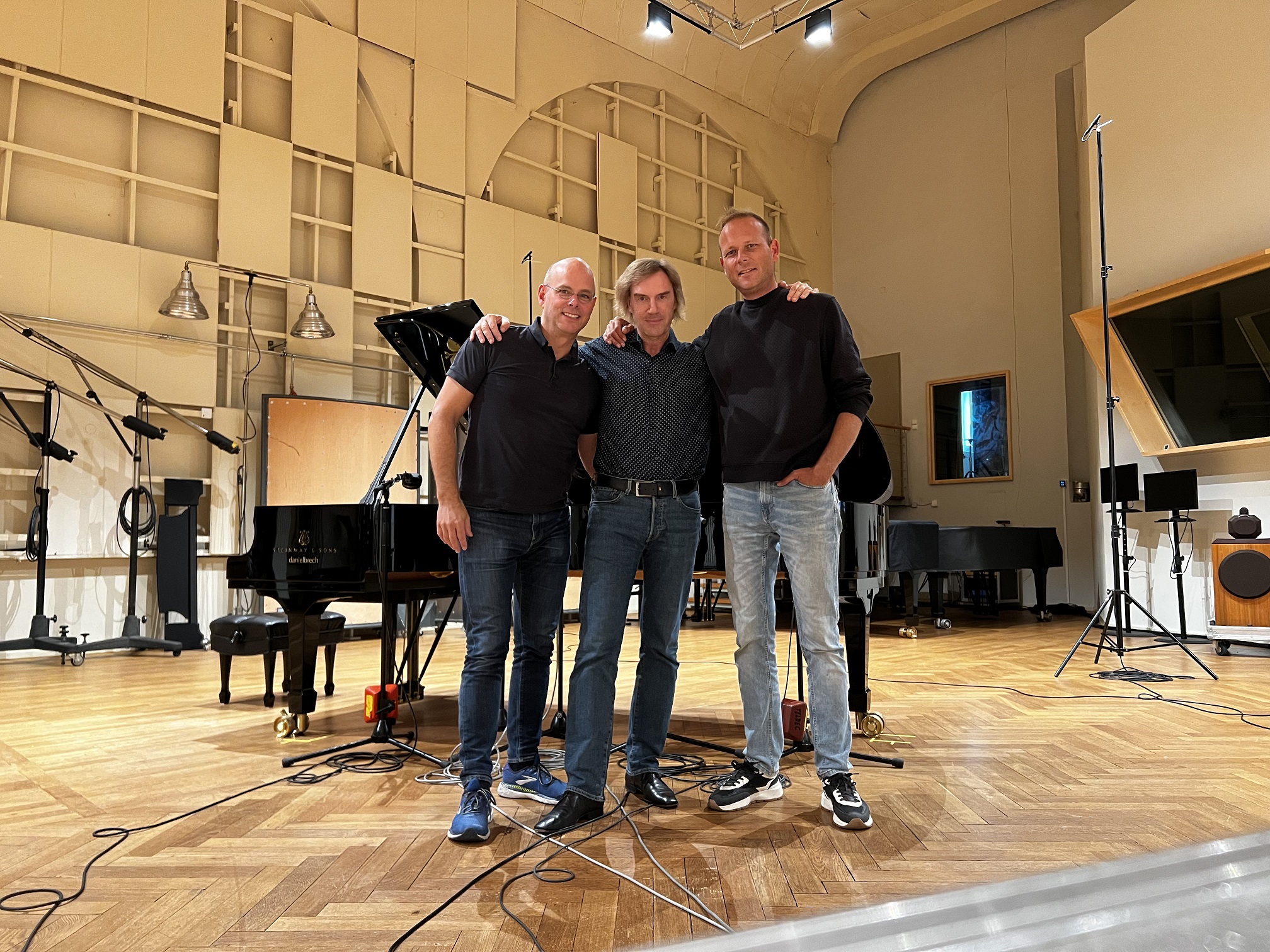
Burkard (centre) in the studio, ready to record his new album
The apparently carefree Arabeske Op 18 (it is believed to be a musical letter to Clara, whose father had opposed the pair’s marriage) has tripped up many pianists, seduced by its surface attractiveness but blind to its more complex character as expressed in the two intense episodes that punctuate the work. Schliessmann avoids making the same mistake, instead presenting these contrasting episodes powerfully and convincingly. The closing postlude is compelling.
The Fantasiestücke Op 12 Books 1 and 2 opens the second CD. So associated are the names of each of its eight pieces with their respective characters that it comes as a surprise to learn that Schumann only added them after he’d completed the music. Even so, no pianist can resist their influence, least of all Schliessmann who completely and utterly falls under their spell.
The Arabeske and ‘Des Abends’, the first piece in Fantasiestücke, complete the CD. Yes, we’ve heard them earlier but not like this, played using the piano’s additional set of darker and warmer hammers.
What a transformation.
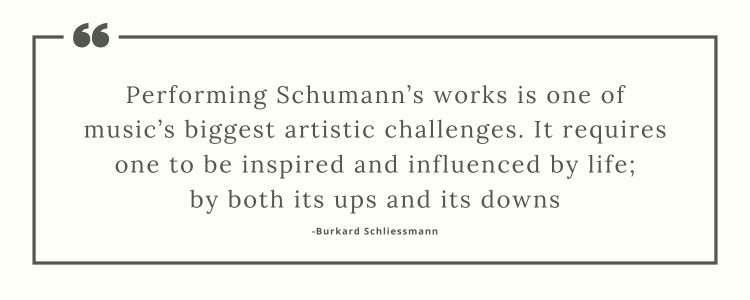
It is as if a veil has been passed over the sound, rendering it more softly focused and dream-like, perhaps exactly the quality Schumann sought. The final disc picks up the theme with Nachtstücke Op 23, a work at first sombre and mysterious and which, for all its subsequent lightness, retains that brooding character throughout. Schliessmann is in his element here, especially in the intensely reflective and brooding closing piece.
In Drei Fantasiestücke Op 111 much of Schumann’s complex character with its shifting moods is laid bare in no less than three pieces. Schliessmann says the music represents an emotional rollercoaster between passion, drama and lyricism. It’s a ride he relishes taking us on. And so to the closing work, Gesänge der Frühe, owing to its complexity a piece rarely performed but to which Schliessmann brings insight and authority.
The difficulties of uniting with the composer
Reflecting on his recordings, the pianist says, ‘I see my role as interpreter, as being a servant of art. The great composers have written their texts so clearly, that their intention and statement are unmistakable. It is the interpreter’s task to honour this fact while bringing their own personality to bear on their performance, without distorting the composer’s intentions. When we look at the history of the great performers, we learn that interpreter and composition merge into a great, all-embracing unity.’
That said, in the case of Schumann, Schliessmann admits this pursuit of unity is no easy task. ‘Performing Schumann’s works is one of music’s biggest artistic challenges. It requires one to be inspired and influenced by life; by both its ups and its downs. These experiences inform my initial acquaintance with the music at an improvisatory level but as one begins to study it, one becomes more aware of its internal structures. This may be an intellectual process but a great interpretation succeeds in going back to the improvisation but now in an enlightened and uplifted spirit and state of mind.’
His respect for the score combined with his own responses to the music makes possible a fresh interpretation each time he plays, he says. ‘Freedom of interpretation with a regard for the inner sense of the music has its roots in the sense and spirit of Romantic realism.’
Which brings us back to where we began.
With the pieces on Schliessmann’s new 3-CD set, Schumann perfectly expressed that sense and spirit of Romantic realism, an achievement which, in the end, was to have tragic consequences. Was the composer mentally ill? ‘Everything in Schumann’s work was “planned” at the highest level,’ says Schliessmann. ‘Hence my personal conviction that Schumann was never “ill” but was always misunderstood.’
Thanks to the pianist’s new release, perhaps we, too, will also come to understand him.
Enjoy more fascinating interviews, tips, advice, expert video lessons and masterclasses direct to your inbox when you sign up to the Pianist mailing list.







